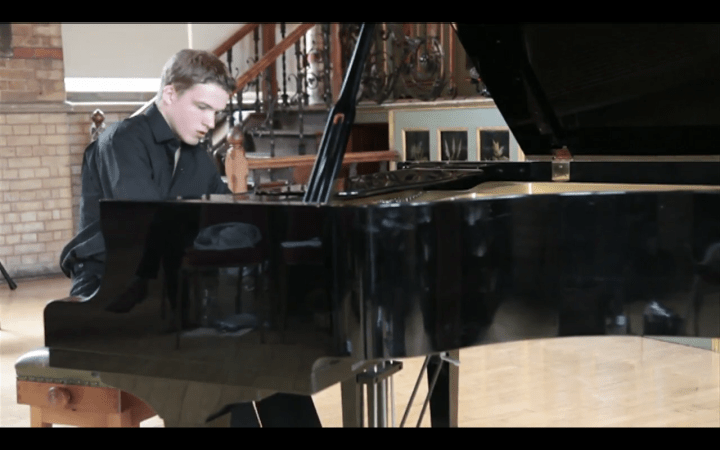Never underestimate the value of performing, whether at home for family and friends, or in a ‘proper’ concert venue on a really special grand piano. Performing for others, and the ability to get up and do it, is an important life skill as it builds confidence and self-reliance – and not just in the sphere of music.
The rush of adrenaline that comes with performing often encourages you to ‘raise your game’ and play better, and interesting things can happen to your music when played before an audience, which may not occur during practice. As a musician, of whatever level, it is crucial in one’s musical study and development to experience the difference between practice and performance, to put your music ‘out there’ and offer it up to other people for scrutiny. Performing endorses all those lonely hours we spend practising, and reminds us that music is for sharing.
It is important for students to hear each other perform too: listening to others in your peer group can be a useful benchmarking exercise, allowing you to measure your own efforts against those of others. If you hear more advanced students perform, you will feel inspired and keen to progress. Performing for and with others is also a means of sharing and discovering new repertoire. At every piano course and piano group I’ve attended I’ve come across new repertoire.

As a teacher it is also very important to perform, whether for students in student concerts, or in more formal settings in the concert hall. How can you train others how to perform if you haven’t done it yourself? I have met many piano teachers who rarely or never perform, claiming they are too nervous to play in front of their students, or that they simply do not have the time to prepare repertoire. In my experience, my students want to hear their teacher play – lessons often end with me playing something at the student’s request, and I hope that by hearing and watching me playing, my students can better grasp aspects of technique or interpretation we might have discussed in lessons, as well as enjoying more advanced repertoire and the sheer pleasure of listening to piano music. I also feel it is crucial, as their teacher, to show that I can actually do it, that I fully prepared when I perform, and that I have managed my performance anxiety properly. I also get ideas when I am performing which inform my teaching.
Performing adds to one’s credibility. Whether a professional or an amateur, it is important to prove that you can actually do it, and, for the amateur pianist, the benefits of performing are immeasurable: you never really demonstrate your technique properly until you can demonstrate it in a performance. Music and technique are inseparable, and if you perform successfully, it proves you have practised correctly and thoughtfully, instead of simply note-bashing. This works conversely too, for if you are properly prepared, you should have nothing to fear when you perform. The benefits for younger students are even greater: preparing music for performance teaches them to complete a real task and to understand what is meant by “music making”. It encourages students to “play through”, glossing over errors rather than being thrown off course by them, and eradicating stop-start playing which prevents proper flow. It also teaches students to communicate a sense of the music, to “tell the story”, and to understand what the composer is trying to say. And if you haven’t performed a piece, how can you say it is truly “finished”?
Resources:
How can amateur pianists become professional in their approach to performing? A useful post from ClassicalMel’s piano and music education blog.
The Musician’s Way – an excellent blog (and book) with advice on strategies for productive practice, artistic creativity, and performing.





